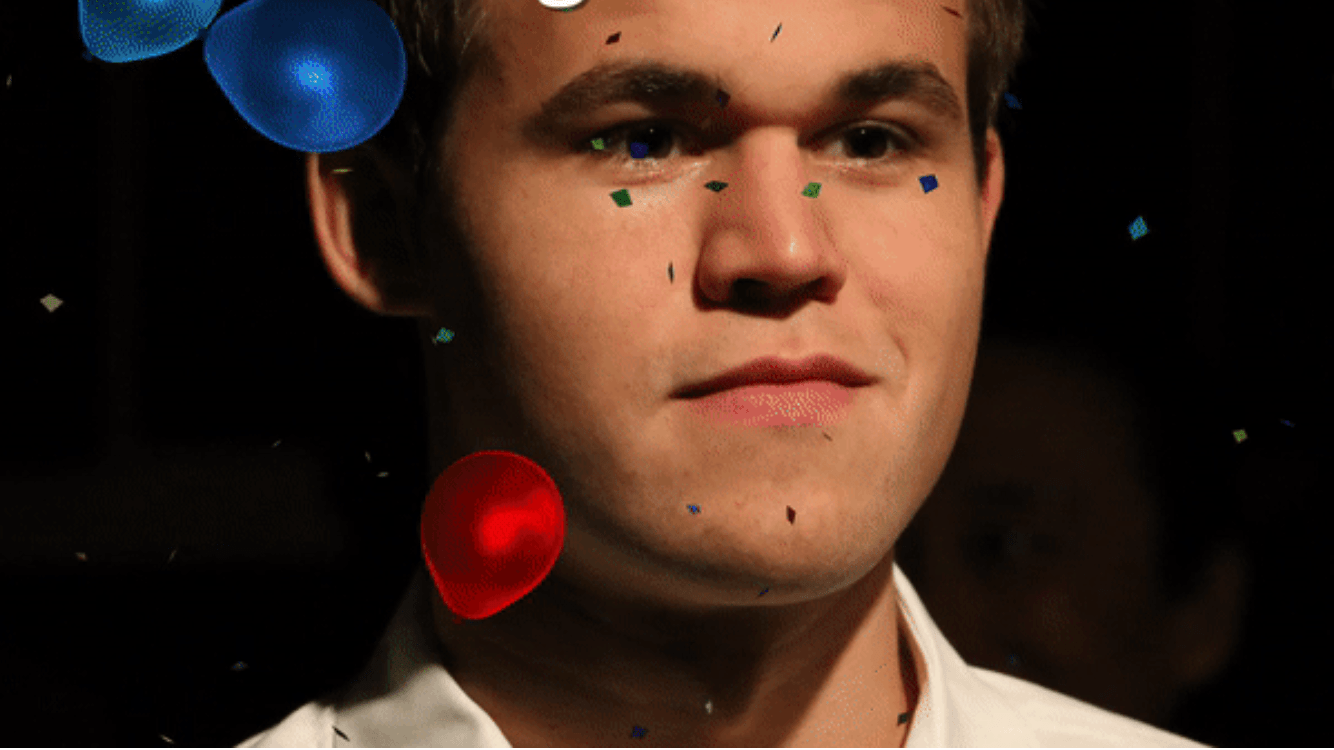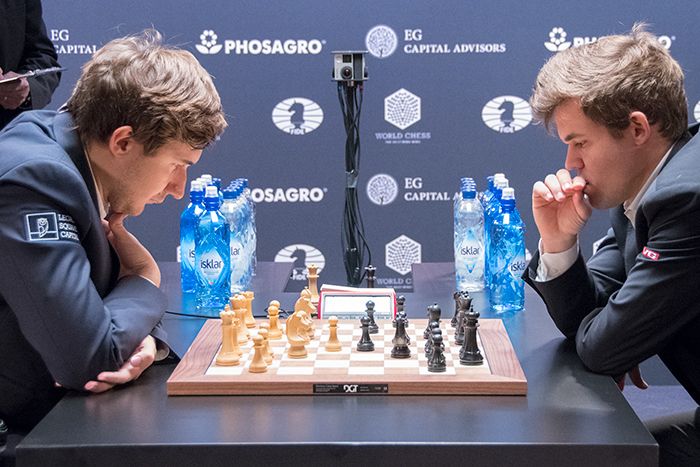
Carlsen Plays Chess On His Birthday
Most people like to celebrate their birthdays and most of my readers like to play chess. Have you ever wondered what happens when you combine these two great things and play chess on your birthday?
Well, recently we had a bunch of high-profile examples.
Magnus Carlsen got himself the best-possible present for his 26th birthday by playing a spectacular queen sacrifice in the following position:
Besides enjoying the obvious aesthetic pleasure, by winning this game Carlsen successfully defended his world title!

Unfortunately, not everyone is so lucky. Tigran Petrosian had to concede his crown to Boris Spassky on his 40th birthday. While technically the last game of the match was played on June 16, 1969, the official closing ceremony where Spassky got his laurel wreath took place on June 17.
After the closing ceremony, Petrosian invited his friends to his house to celebrate his birthday. According to one of the guests, Petrosian's wife Rona was crying the whole evening.
Grandmasters Vishy Anand and Hikaru Nakamura had a similar sad birthday celebration at the recent super-tournament in London where both lost pretty badly on their special day.

Photo: Lennart Ootes.
First it was Hikaru who got a bitter present from Wesley So:
Then it was Anand who got the same present for his 47th birthday:
An unusual but still very unpleasant gift was received by then-FIDE world champion Ruslan Ponomariov for his 20th birthday. One of his friends called him to wish a happy birthday. So Ponomariov's cell phone rang and that's how Ruslan became the first victim of the rule about ringing cell phones during tournament games.
To be fair, Ponomariov's position was already pretty grim at that moment:
The first time I played a serious tournament game on my birthday was when I turned 15:
It was a very memorable tournament for me. I scored 7 out of 8 and got a gold medal on the first board playing against the best Soviet juniors. Also our team won the tournament, which was the first major success for Uzbekistan chess. We had even better results eight years later when we took second place at the Chess Olympiad in Manila behind the mighty team of Russia, which was led by Kasparov, but I digress here.
After the above-mentioned game vs. Dimitri Komarov, I had a small, but very memorable party at my home. Every single guest of the party (Ivanchuk, Dreev, Gelfand and Komarov) later became a grandmaster!
Ten years later I had another memorable birthday during a chess tournament. It was a knockout tournament in Tilburg (Netherlands). I was having a nice lunch thinking about the last game of my mini-match vs. GM Alex Yermolinsky. My thoughts were interrupted by my friend GM Vladimir Akopian who asked me: "Greg, is today your birthday by any chance?"
To my horror I realized that in the heat of the tournament I completely forgot about my 25th birthday! By some strange reason my fighting spirit disappeared almost instantly and a cowardly thought started creeping into my mind: "It sucks to lose a match on your 25th birthday."
As a result, I played the game very cautiously and after a quick draw went to celebrate my birthday.
The next day I won a tie-break. It is funny that 22 years later Magnus Carlsen followed the same strategy in his world championship match vs. Karjakin: a quick draw with White in the last game in order to play a tie-break:
I guess if they didn't have a "no draws before move 30" rule, the game wouldn't be longer than my game vs. Yermolinsky.
As you can see, a draw on a birthday can help you win a match or a tournament. Here is how a young Azerbaijani GM, Eltaj Safarli, clinched a win in the Nakhichevan Open on his 24th birthday:
You see a pattern here? The fewer candles you have on your birthday cake, the better results of the games (and tournaments) you play on your birthday! By comparison, look at the game Capablanca played on the day of his 50th birthday. It is really painful to watch how Black's pieces were gasping for air in a very cramped position:
So, the empirical evidence only proves the point I made in this article: just like in all sports, you get the best results in chess while you are young!






